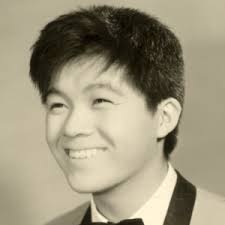The latest murder of American schoolchildren, 600 of them since 1970, by guns in a country too stupid to recognize it has the solution to the senseless slaughter to the problem right under its nose, is so profoundly outrageous and depressing that I feel close to despair. Every day 32 are shot, and 12 die. And before that was the news of the Putin invasion of Ukraine where the choice is between risking nuclear war and asking the heroic Ukrainians to surrender their culture and their nation to the bully next door. And the wildfires and the latest impending drought in California. Not to mention the every increasing numbers of homeless people. And evidence that we're losing the race against world-wide climate disaster. And the once-again increase in Covid-19 numbers and probably a return to lockdowns, which drives everybody mad. And evidence galore that the grossly unbalanced American political system in which rural white supremacists have the upper hand, and self-serving super-wealthy corporatists buy senators and representatives, and democracy seems to be on the verge of going under. And on and on. There is so much temptation to avoid the news.
But I am committed to not turning away. I want to be ready to join forces with others who want to keep democracy alive if the opportunity presents itself, however powerless I feel as a single individual...
Holding off despair and not surrendering to hopelessness means I need a steady influx of love and friendship and humor, good food, witty conversation, healthy images of young people actively engaged in life. And, the biggie, my personal antidote to despair - music.
Somebody asked me recently to list my favorite pieces, the ones I return to with regularity. I listen to lots of music, try to get in at least an hour or two a day, and am always looking for new pieces. I have a great love of opera and instrumental music, especially piano, but also violin, cello. Love Yo Yo Ma.
Here are ten of my favorites. I have no desire to rank them. I don't see performance as competition, as much as I like watching competitions like the Tchaikovsky Competition held every year in Moscow and St. Petersburg and the Chopin Competition in Warsaw which I watched in its entirety this year. I like popular music as well as opera and Broadway musicals, folk music, bluegrass, and even country, provided its sung by Dolly Parton - anything in which the performer is obviously having a good time and not holding back.
I list these pieces in no particular order. And I repeat, these are not my idea of the best things available on YouTube, but pieces I happen to have discovered over the past few years that I return to with regularity. The selection is completely arbitrary and purely subjective. And it represents only where I happen to be at this moment. I expect not to remove any of these from my list of favorites, but there is no end of pieces I will want to add as time goes by.
But here's my answer to the question a dear friend asked recently, "What are your favorite musicians, performances, composers, and pieces of music?"
- Two from Puccini’s operas - “O, mio babbino caro” from the opera Gianni Schicchi. So very many beautiful versions of this. Every soprano takes this one on. If I had to pick a favorite, it would probably be the performance of Renée Fleming with the Berlin Philharmonic. She draws it out, the better to show off her powerful voice control - and the conductor, Ion Marin, is right with her making it happen: https://www.youtube.com/watch?v=Sf-tjXevlyQ
- And “Nessun dorma” from the opera Turandot, sung by Luciano Pavarotti https://www.youtube.com/watch?v=Q_hLh4qCqpg
- A third operatic piece, this one by George Bizet: “Pearl Fishers’ duet” from the opera by that name, The Pearl Fishers - sung by Dmitri Hvorostovsky and Jonas Kaufmann https://www.youtube.com/watch?v=p2MwnHpLV48
- And one from a musical showpiece, Schönberg and Kretzmer’s Les Misérables, “Bring him home” - Alfie Boe https://www.youtube.com/watch?v=FX7PYCWzH9I
- Then come several of my favorite pieces and performances by piano greats. These include Tchaikovsky’s “Pas de deux” from The Nutcracker Suite, performed by Alexander Malofeev https://www.youtube.com/watch?v=nZtqjelW_nA. Credit should also go to the arranger of this piece, composer and pianist Mikhail Pletnev. And you might also enjoy watching Alexander play this same piece when he was only eleven years old: https://www.youtube.com/watch?v=KU9xprajIJU
- There are so many superb Russian pianists. My all-time favorite is Vladimir Horowitz, but I won’t list his many brilliant performances here, because I’m limiting myself to pieces I currently play over and over again. One I do have to include, though is Rachmaninoff’s "Italian Polka," performed by Vyacheslav Gryaznov https://www.youtube.com/watch?v=tj8vzloRKQ0
- And then there is virtually anything and everything by the Jussen Brothers. If I had to reduce it to a single piece, the performance that I return to the most, it’s Arthur Jussen’s version of one of Brahms’ fourteen Intermezzos, many say his best, Opus 118, No. 2 https://www.youtube.com/watch?v=7Wo4IPNMzWQ
- Then there are two pieces that are sort of outliers - not the stuff of top rate opera and concert pieces, but rather music in a more popular vein which nonetheless I find touching and comforting in the extreme: one is “The Lonely Shepherd” on the panflute by Gheorghe Zamfir https://www.youtube.com/watch?v=orL-w2QBiN8, performing with the populist conductor André Rieu and his orchestra.
- And the wonderful German lullaby, “Schlafe, mein Prinzchen, schlaf ein" (Sleep my little prince, sleep), sung by the Regensberger Domspatzen (which translates to “Sparrows of the Cathedral”) https://www.youtube.com/watch?v=tdLwbdfINnU
- I want to stop with ten, so this list doesn’t get out of hand. There are more than ten, though, so I’m going to split the number ten position between Paul Robeson’s Ol’ Man River https://www.youtube.com/watch?v=eh9WayN7R-s and Jeanette MacDonald’s San Francisco https://www.youtube.com/watch?v=ttJMkuaclso


